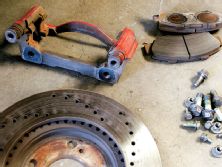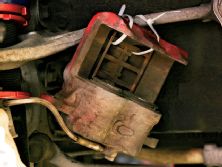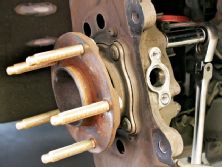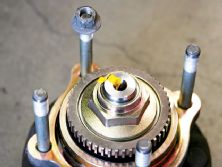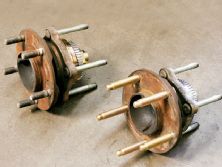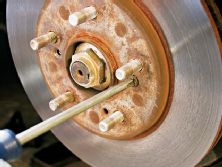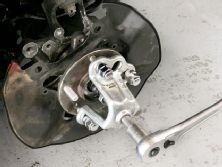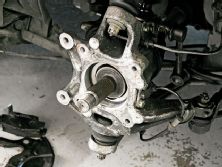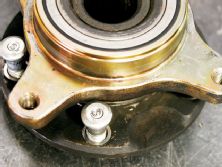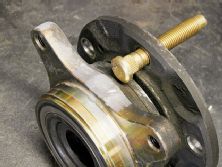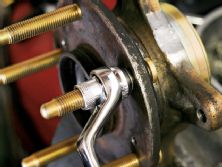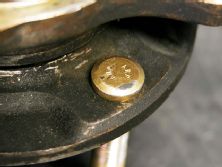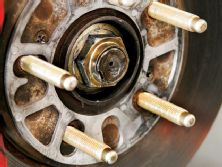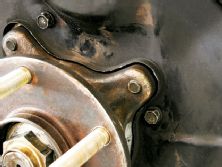Wheel Studs: You Can Do It
There are a few reasons why you might want to swap your factory wheel studs for something different. Certain wheel offsets and widths, as well as some big brake kits, often require wheel spacers, which as a result can leave few threads exposed on the OEM studs. Some racing organizations, like the NHRA, require wheel studs to protrude a certain amount past the lug nuts-OEM Honda wheel studs are typically not long enough to meet this requirement. Or maybe you've simply found yourself in a situation like we did with our NSX project where a few of the car's studs were stripped and a few others snapped clear off the first time we removed the wheels. It's nobody's fault, really. Studs do wear over time and several thousand heat cycles and improper torque-downs will finally take its toll. A lack of antiseize can do it too. Most extended length wheel studs are stronger than OEM ones, especially if you go with hardware from ARP, an expert in the field of automotive nuts and bolts. ARP's studs are manufactured from 8740 chromoly steel, are cadmium plated, and have a tensile strength of 200,000 psi. Studs like these can easily handle the types of shock loads and lateral forces normally associated with hard launches and cornering-things you do when you're racing. Oh, ARP extended wheel studs look nice too.

